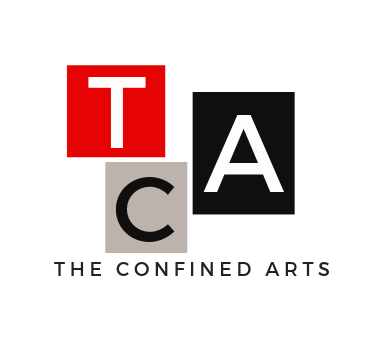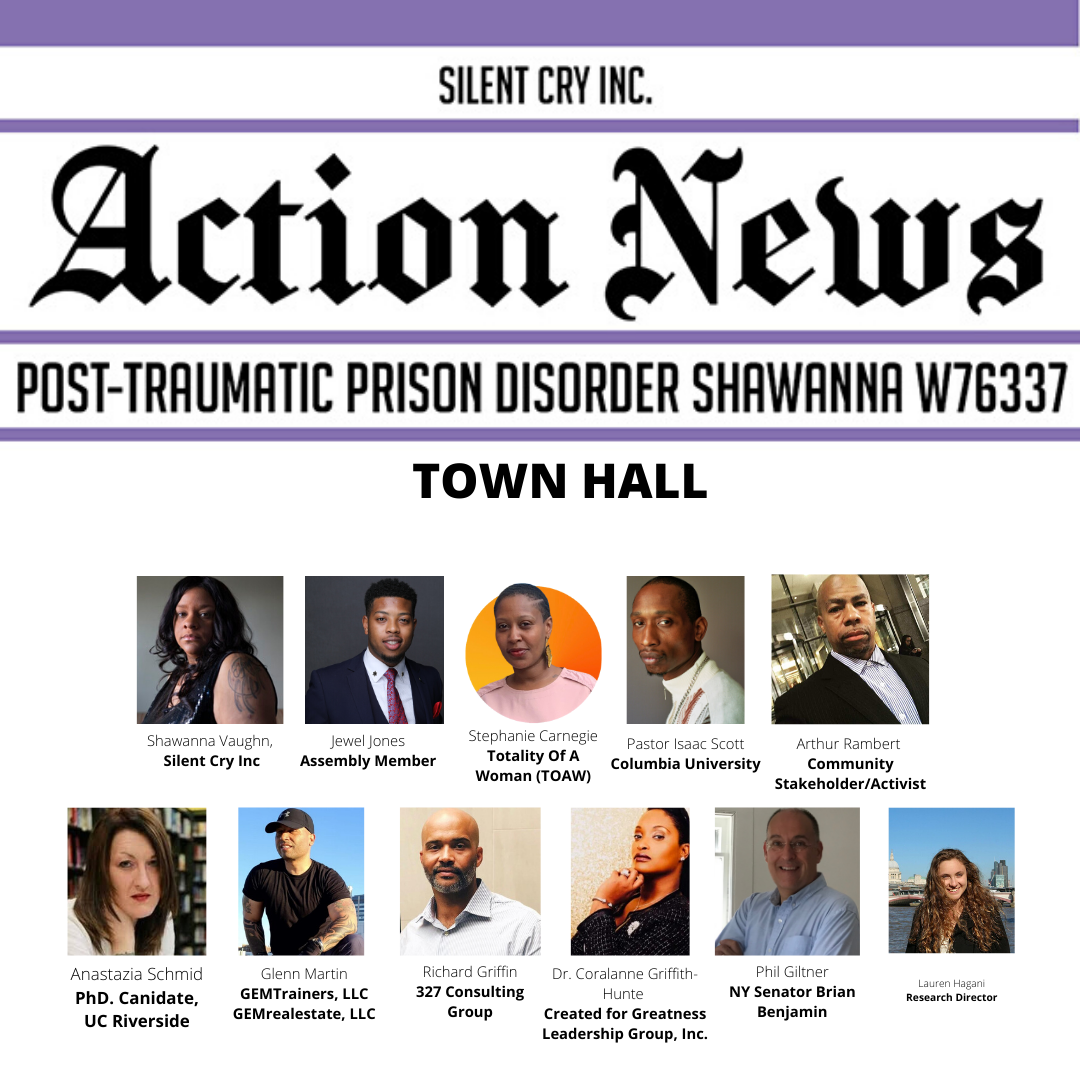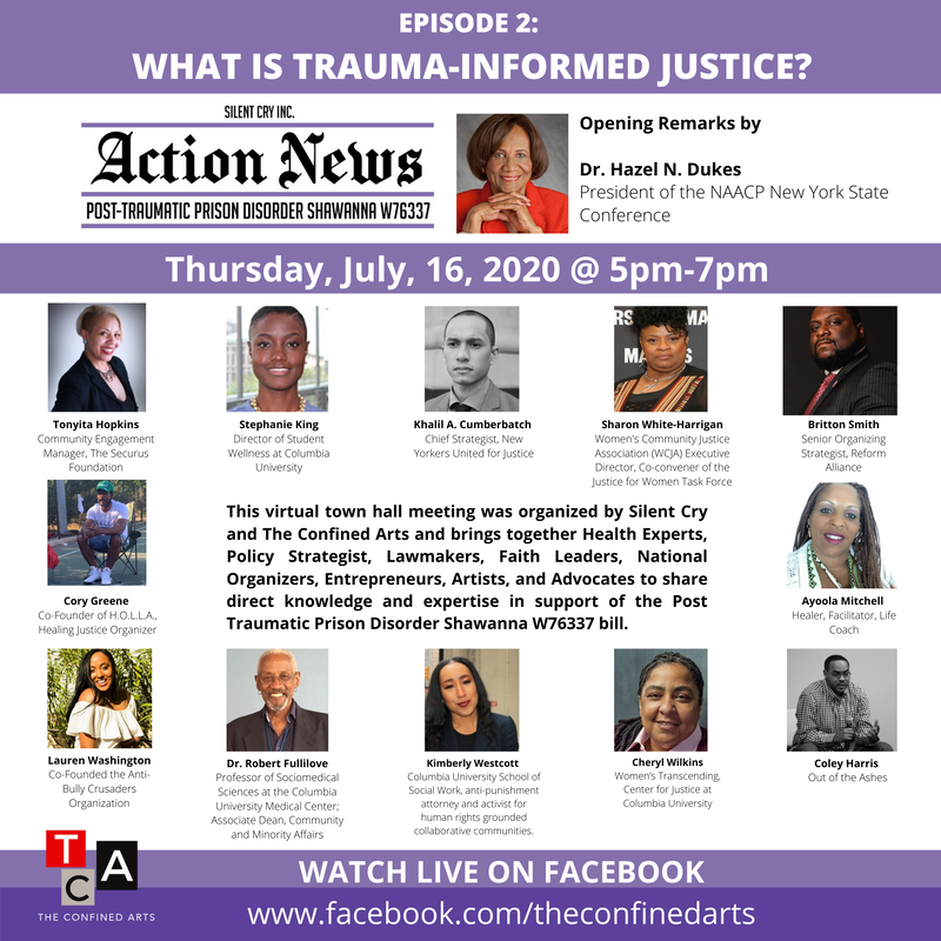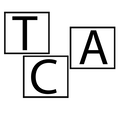THE BILL
The Confined Arts has conducted research at Columbia University that has been shared to support the Post Traumatic Prison Disorder Shawanna W76337 bill to amend the correction law, to address Post Traumatic Prison Disorder lowering and preventing future incarceration, reoffending and relapsing for high risk populations.
THE ISSUE
Research shows evidence that incarceration has negative psychological effects on people in prison. These include: A dependence on institutional structure and contingencies. Hypervigilance, interpersonal distrust, and suspicion. Emotional over-control, alienation, and psychological distancing. Social withdrawal and isolation. Incorporation of exploitative norms of prison culture. Diminished sense of self-worth and personal value. And post-traumatic stress reactions to the pains of imprisonment (Haney, 2001). The deprived social environment of prison can potentially impede one’s social capacity to navigate various social obligations post-incarceration.
The virtual town hall meetings were organized by Silent Cry and The Confined Arts and brings together Health Experts, Policy Strategist, Lawmakers, Faith Leaders, National Organizers, Entrepreneurs, Artists, and Advocates to share direct knowledge and expertise in support of the Post Traumatic Prison Disorder Shawanna W76337 bill.
The Confined Arts has conducted research at Columbia University that has been shared to support the Post Traumatic Prison Disorder Shawanna W76337 bill to amend the correction law, to address Post Traumatic Prison Disorder lowering and preventing future incarceration, reoffending and relapsing for high risk populations.
THE ISSUE
Research shows evidence that incarceration has negative psychological effects on people in prison. These include: A dependence on institutional structure and contingencies. Hypervigilance, interpersonal distrust, and suspicion. Emotional over-control, alienation, and psychological distancing. Social withdrawal and isolation. Incorporation of exploitative norms of prison culture. Diminished sense of self-worth and personal value. And post-traumatic stress reactions to the pains of imprisonment (Haney, 2001). The deprived social environment of prison can potentially impede one’s social capacity to navigate various social obligations post-incarceration.
The virtual town hall meetings were organized by Silent Cry and The Confined Arts and brings together Health Experts, Policy Strategist, Lawmakers, Faith Leaders, National Organizers, Entrepreneurs, Artists, and Advocates to share direct knowledge and expertise in support of the Post Traumatic Prison Disorder Shawanna W76337 bill.
watch Episode 1click here to learn more |
watch episode 2CLICK HERE TO LEARN MORE |
**CALL TO ACTION**
Behind the prison walls there are many Silently crying. Let's answer the call of our communities inside and outside. If you are in New York State please write or call Senator Brian Benjamin's office. If you are in Michigan please Write or call Assemblyman Jewell Jones office in support of this legislation. Write them and say “We need Post traumatic prison disorder Shawanna W76337”, a holistic approach to healing from incarceration.
If you would like to assist in petitions, lobbying, and supporting this legislation please email : [email protected]
We also would like commitments for volunteers, petitions, monetary donations for promotional purposes and interns.
Information of the author: Out of my own Silent Cry's. My own emotional experience of trauma and pain from the incarceration system to the post incarceration population. It's taken multiple years and ways of healing through the pain. But, through trauma comes healing. And, we will become whole together.
If you would like to assist in petitions, lobbying, and supporting this legislation please email : [email protected]
We also would like commitments for volunteers, petitions, monetary donations for promotional purposes and interns.
Information of the author: Out of my own Silent Cry's. My own emotional experience of trauma and pain from the incarceration system to the post incarceration population. It's taken multiple years and ways of healing through the pain. But, through trauma comes healing. And, we will become whole together.




